 06.03.2024, 11:59
06.03.2024, 11:59
The prospects of this growing business were discussed by the participants at the international conference on February 29, in Kyiv.
How successfully can you grow berries and vegetables undercover? Are there any peculiarities and financial benefits for growing berries undercover by comparison with the open ground? These hot topics were under discussion by the participants of the first international scientific-practical Conference "Vegetable and Berry Growing Undercover or in the Open Ground: Technologies and Innovations", that took place on February 29 - March 1, 2024. Kyiv restaurant - hotel complex “Verkhovyna” gladly hosted this event. 29 February, the first conference day, included presentations by specialists in growing fruit and vegetable crops undercover or in the open ground, an exhibition of technologies for effective business management. 1 February, the second day included a business tour to the well-known enterprise “Viplant”, located in Kyiv region, engaged in growing garden strawberries and blueberries in open ground on an area of 7 hectares, and cabbage seedlings, cucumbers, and tulips in the closed ground since 2017.
At the beginning of the conference, participants took a moment of silence for those no longer with us, heroes who gave their lives to save Ukraine against invaders. Kateryna KONEVA, the founder of the media group "Technologies and Innovations", delivered her welcoming speech.
- Today, many participants of different ages gathered together in this conference hall where the oldest one is 74 years old! And, a strong desire to learn something new and self-developing gives us inner forces on the way to development. The conference gathered people from all over Ukraine: from Chernivtsi to Kropyvnytskyi, from Kovel to Odesa, from Uzhhorod to Kherson - more than 250 participants in total! The conference theme is new for us, and we are pretty glad that you attended because growing under cover is a global trend that will help create a new business or develop an existing one.
Nadiya Yashchuk, the co-founder of the media group "Technologies and Innovations", also delivered a welcoming speech as well.
- This conference "Vegetable and Berry Growing Undercover or in the Open Ground", gives opportunities to find new partners, conclude contracts, and establish new relationships. Notably, some big retailers are also presented with their representatives, in particular, METRO Cash and Carry Ukraine, Velmart, Velyka Kyshenya, and Ecomarket, to find new business partners. Tomorrow morning, participants will go on a business tour to the "Viplant" farming enterprise, which successfully specializes in growing berries, vegetables, and flowers under cover.
Kateryna Konyeva also noted that the media group "Technologies and Innovations" has been publishing specialized journals on berry and nut growing, horticulture, viticulture, and beverage production for 13 years. In addition, the media group conducts specialized conferences for these industries, and today is the 34th event.
Maksym VASYLENKO - the head of “Viplant” farming enterprise, our partner on the business tour, also gave a welcoming speech. He invited everyone to visit his farm on March 1 during a business tour.

Not only specialists in agricultural enterprises and technological companies but also representatives of the Ministry of Agrarian Policy and Food of Ukraine were involved in the conference. Andriy KRAVCHENKO, Head of the Department of Agriculture and Crop Production, Deputy Director of the Department of Agrarian Development, and Deputy Director of the Department of the Ministry of Agrarian Policy and Food of Ukraine, addressed the conference participants online. He dedicated his speech to one of the priority areas of work of the Ministry of Agrarian Policy and Food of Ukraine - the demining of agricultural lands. According to Andriy Kravchenko, if considering the occupation of the southern regions, as well as significant problems in the south, the loss of traditional perennial and vegetable plantations, it was decided to demine the land that falls under the category of perennial plantations, as well as on which it’s planned to grow vegetables, as a priority.
Thus, Andriy Kravchenko noted that horticulture, vegetable growing, and viticulture are among the priority areas of development in our state. We see increasing areas to use under intensive industrial plantations. According to the statistics obtained from the regional military administrations, the production volume of fruit and berry crops amounted to more than 19 thousand quintals in 2023. The production volume of grain crops amounted to more than 13,549,000 quintals. The area under intensive industrial plantations is increasing. In particular, grants are provided for the creation of horticulture and viticulture businesses, grants for the creation of greenhouse farms, for the creation of business models for participants in hostilities, and grants for processing enterprises. There is a separate section on the official website of the Ministry of Agrarian Policy where there is a link to the legal acts that regulate this issue.
Anastasia TERZEMAN, a specialist in plant variety registration, introduced the IP and Law firm "Pakharenko and Partners", our legal conference partner, delivered a speech about the registration of plant varieties, especially on obtaining patent protection and the right to distribute.
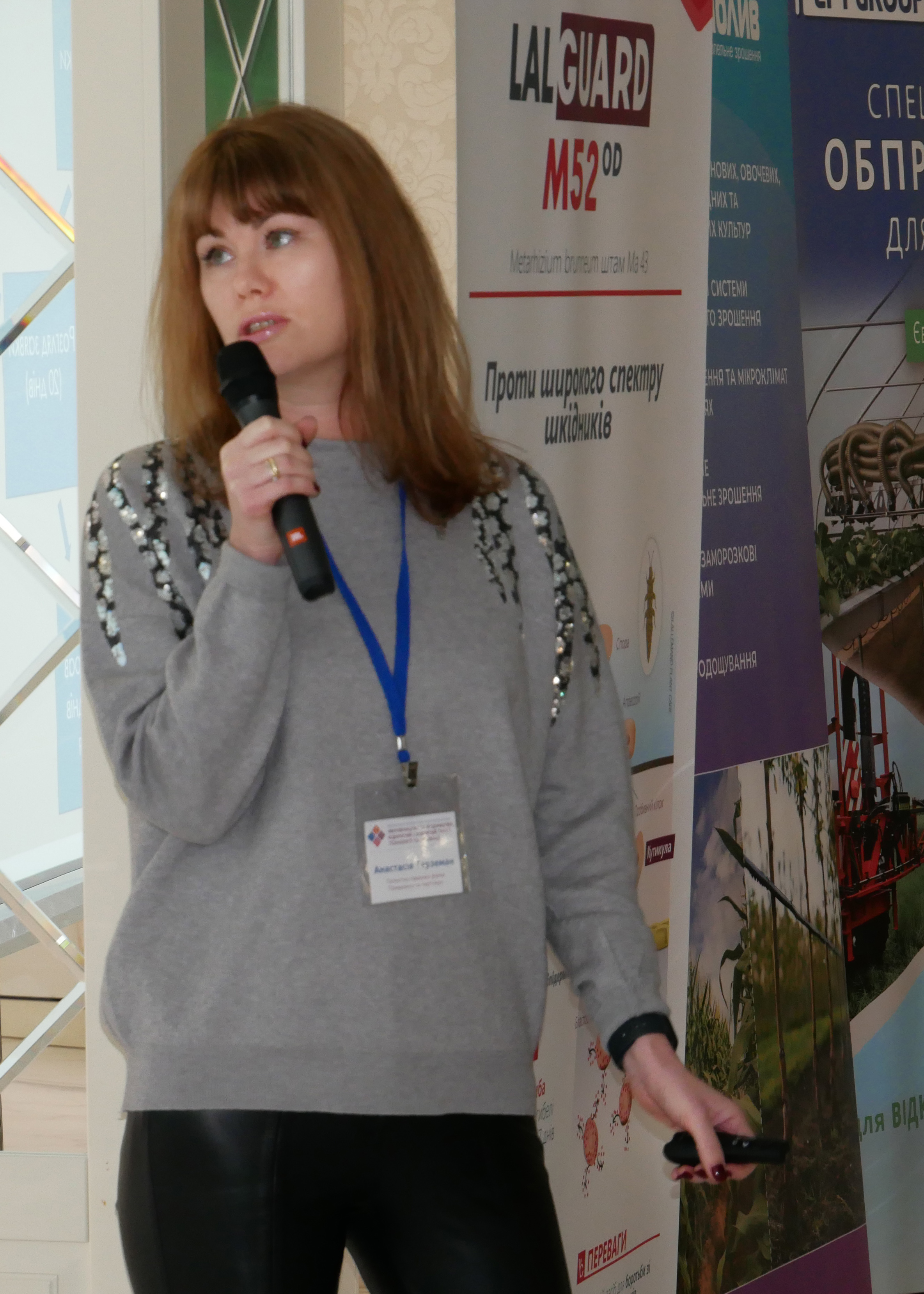
The speaker also told us about the latest changes adopted for the process of plant varieties registration. Anastasia Terzeman noted that the procedure for obtaining a patent for a variety consists of the following stages: applying submission of an application, consideration including verification of the submitted documents, an expert examination of the variety novelty, and names. There is a separate qualificative expert examination. After these stages, state registration for the variety is carried out. This examination includes not only the verification of documents, as was previously on the website of the formal examination, but also the examination of novelty and variety names, with a deadline for considering the application - 20 days.
Growing berries in greenhouses and open ground: experience
Before you start growing something undercover, it would be better to understand as far as is reasonable and practicable also understand the types of protected soil, assured Serhiy ZMIYCHUK, the general director of FruTech company. Thus, Serhiy Zmiychuk`s report covered on the prospects of growing berries undercover. He noted that you can grow almost everything undercover. Plants grow much better and have a higher yield, and the owners of such businesses have a longer supply season despite any weather conditions. There is also partially protected soil, and among them are covered tunnels, anti-hail covers, and micro tunnels. At the same time, there is closed soil with controlled conditions, in particular, with fully or partially controlled conditions. A closed soil with fully controlled conditions is, for example, the format of vertical farms, where artificial lighting is fully controlled, and lighting spectra are chosen for different crops and phases of their growth, with provided air conditioning. Such conditions require not only heating but also air cooling, which is technologically more difficult and expensive because even the LED lamps used in such production produce too much heat for a closed room. What can be grown in such an expensive production? Cannabis, basil, and other short-lived aromatic herbs. It`s possible to carry out higher stages of plant reproduction, for example, acclimatization of plants in vitro, and quick growing of seedlings of some hybrids for selection. Of course, it’s technologically possible to grow berry crops in this format to obtain berry products for the premium market but there’s no economic sense.
What we should pay attention to avoid mistakes at the beginning of berry growing under cover, was told by an international expert in berry growing, agronomist-consultant Hanna LUTSKO. The speaker also analyzed different types of tunnels, detailing what is better for growing in this or that one.
Hanna Lutsko noted that many producers who won grants have already made many mistakes and contacted me with advice. It should be understood that there are solo tunnels, a stand-alone structure, meaning a single piece of polythene covers the entire structure and seals at ground level and block structures. Grants are given exclusively for single or solo tunnels. Therefore, it`s necessary to understand for what they can be used. Single or solo tunnels are much warmer than block tunnels and are designed for growing early or late products. Strawberries are often grown in such types of tunnels. But such tunnels are too hot for remontant strawberries. In such tunnels, we use the technology of strawberry double harvesting. We plant frigo seedlings in August and start harvesting in September, 40 days after planting. After that, this plant overwinters to get the next harvest from these same plants in the spring. Then we change the seedlings. This technology is commonly used in Europe. Single tunnels are not suitable for growing remontant raspberries. You can grow early summer raspberries in them.
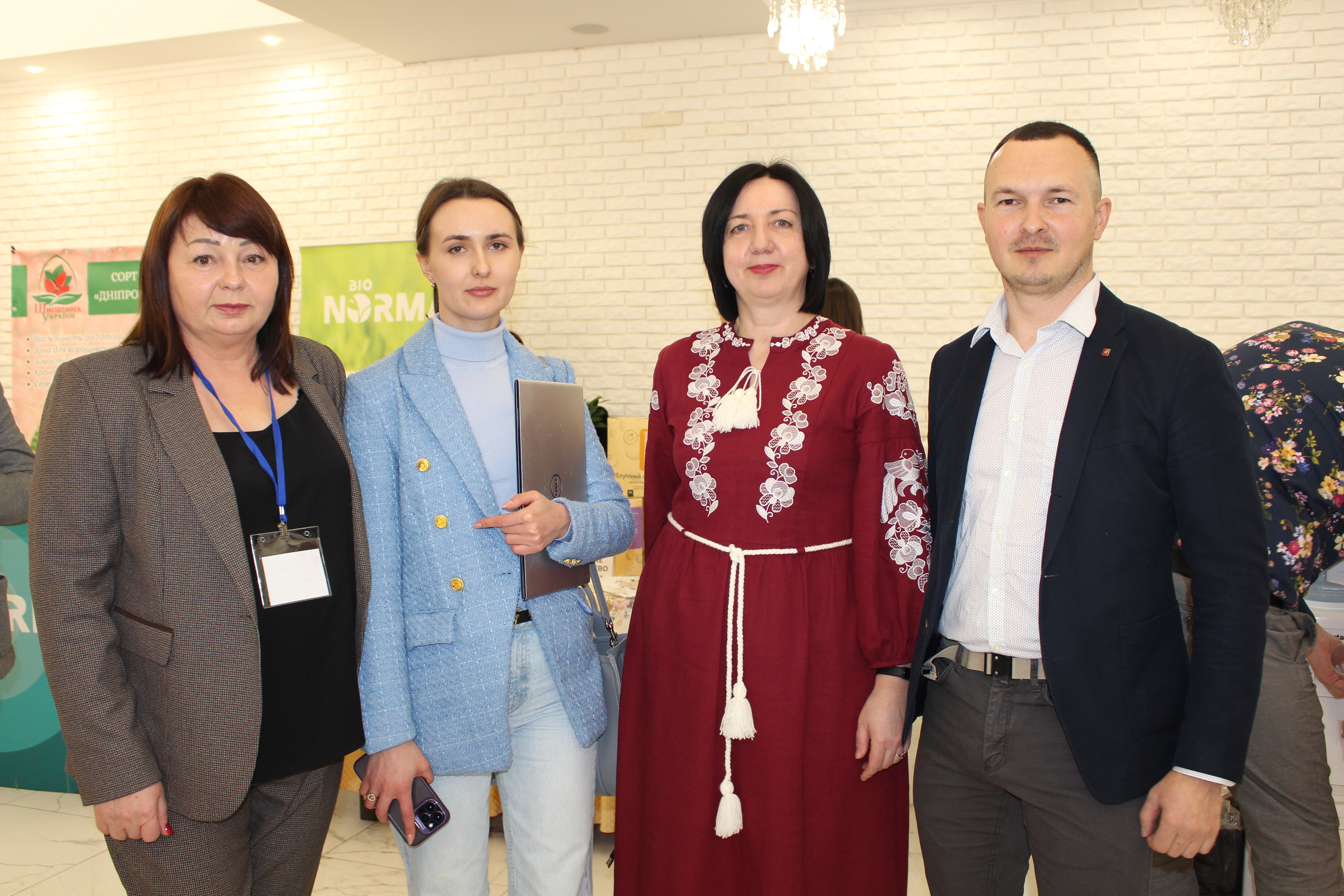
Anton DOVGANYUK, a berry crop consultant, also presented varieties of garden strawberries for open and closed soil. According to the speaker, such varieties as Rumba, Allegro, Sensation, and Faith are suitable for growing in open and closed soil. These varieties can also be used for processing. Moreover, there are such remontant varieties Albion, Furore, and Murano, which also are suitable for open and closed soil. Mediterranean varieties Kalinda, Fandango, and Festival are suitable for undercover growing.
The agronomist of the Dutch company Flevo Berry B.V. told us about the peculiarities of growing garden strawberries on a substrate in tunnels and greenhouses. The speech was online. Jan ROBBEN paid attention to common mistakes made by strawberry growers.
- One of the most common mistakes is using unbuffered coconut substrate. The unbuffered substrate is not washed and saturated with calcium. If you are going to plant in it, the substrate will hold calcium ions and will be inaccessible to plants leading to weak plant growth. Thus, the substrate must be washed with a high-calcium solution. The next mistake is saving money on planting material. If you want to build a high-tech production, after that you should not save money on planting material. Cheap plants differ from high-quality ones primarily because they have a lower yield potential. An inflorescence can come out at once altogether, and not one after the other, which leads to reduced plant yield, and berry quality will be much worse. If you are dealing with good nurseries, you can discuss the order in advance, your requirements for the plants you want to buy, and your expectations, and the nursery will provide planting material of the appropriate quality, was noted by the speaker.
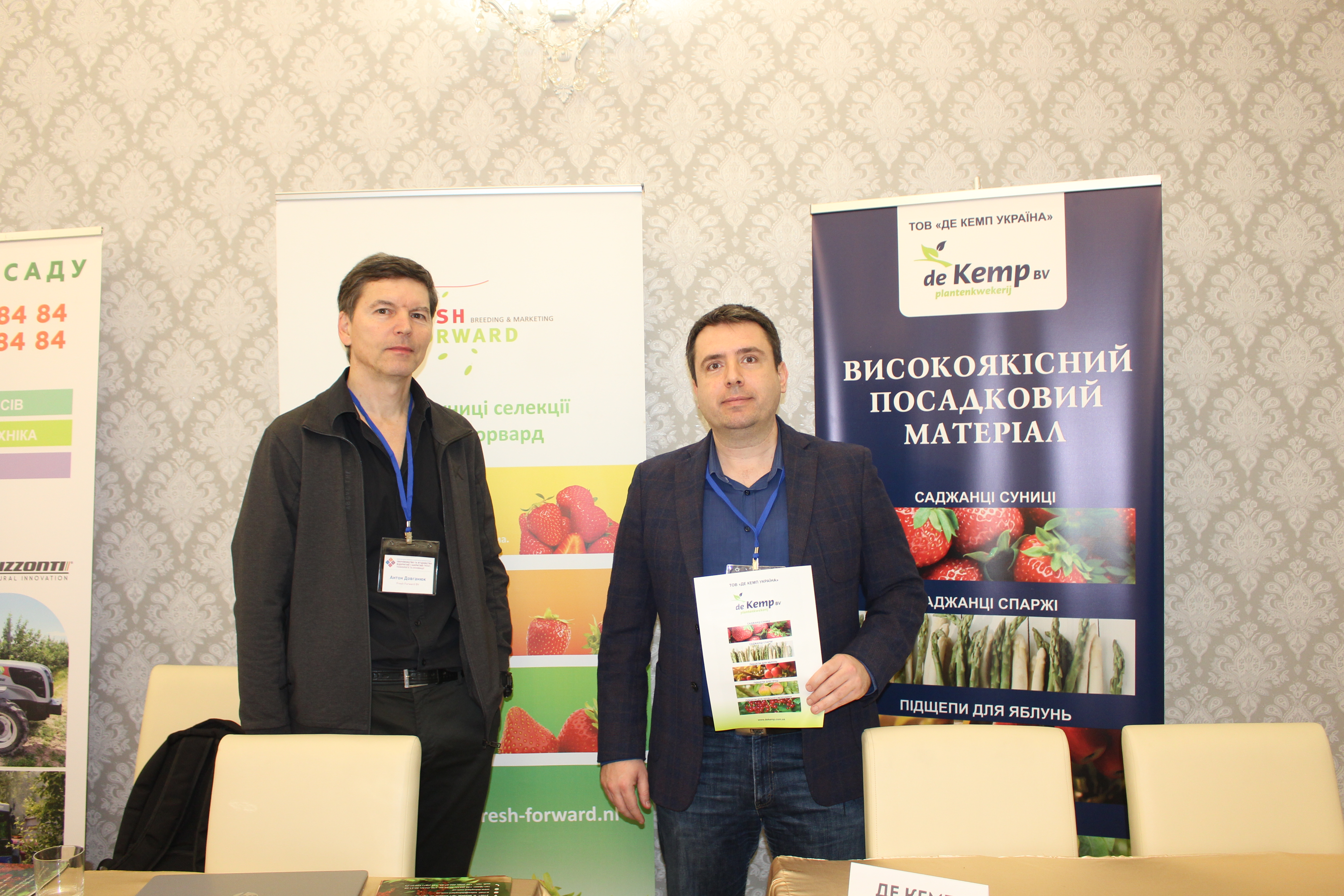
Iryna PAVLOVA, agronomist-consultant, shared her experience of growing berries in tunnels according to the European model. The speaker paid attention to raspberries and talked about their varieties suitable for growing undercover.
Iryna Pavlova told us about Enrosadira raspberry variety If you are going to grow it according to the technology for double harvesting, then you can get 1335 g of berries from one shoot, and for the usual autumn harvest - 1000 - 1002 g. This variety is good because 97% of the berries are of the first class. Berries are very transportable, easy to store, and sweet taste. Enrosadira is the variety that is the most sold in Europe in supermarkets. According to proper growing technology, this variety has a brix of 11–14.5. It’s also worth paying attention to the HUSARIA variety demonstrating pretty good results growing in tunnels. This variety is later than Enrosadira, has sweet berries, brix - 12-14. The berries are easily picked up from the bush to be harvested once every 2-4 days and do not fall up having a marketable appearance.
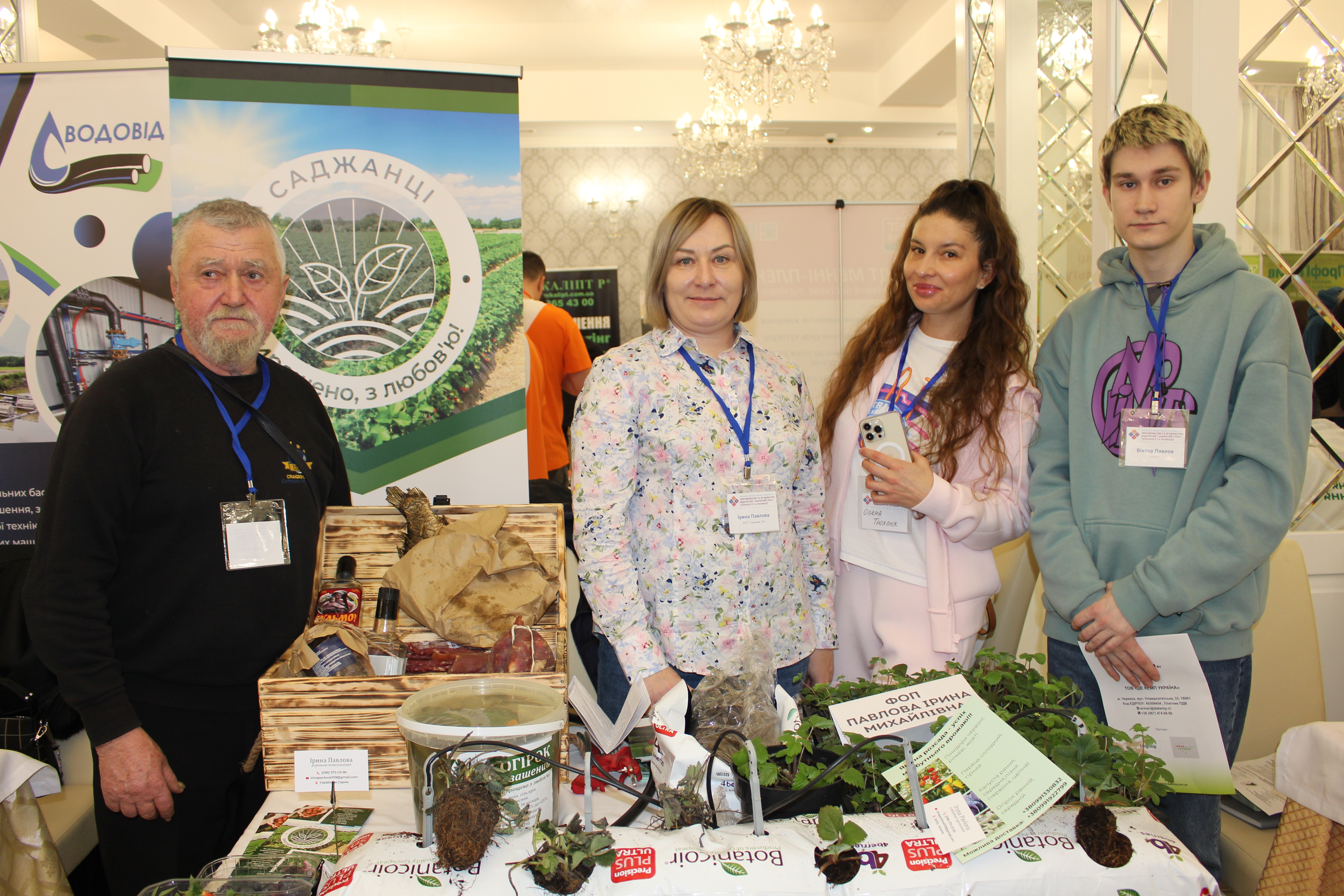
Raspberry is a berry crop that disappointed many growers, especially newcomers, noted agronomist-consultant Iryna KOBRYNETS. The spokeswoman informed that raspberry is a niche berry crop for the fresh market in Ukraine, to be less consumed and bought. The reason for the low consumer demand is the low quality of the berry and low taste properties. People like to buy with their eyes, and every year the customer becomes more and more demanding.
Iryna Kobrynets gave some tips about raspberries for the fresh market. If considering this issue from the consumer`s point of view, raspberries should be good-looking, tasty, transportable, and easy to store, packed with a customer orientation. Also, the berries should not darken after harvesting. From the producer`s point of view, raspberries should be productive, as resistant to pathogens as possible, and easy to harvest.
The speaker also analyzed the most common summer fruiting raspberry varieties in Europe - Glen Ample, Tulamin, Lagorai, and Pshekhiba.
It`s important to use the area in greenhouses efficiently. The founder of Berry Prykarpattia farm, Bohdan LUTCHYN shared his practical experience of combining berry and vegetable crops that growing undercover. The farmer grows not only garden strawberries but also watermelons of the Talisman variety undercover on both sides of the greenhouses. Every centimeter of the greenhouse is matter, according to Bohdan Lutchyn. The farmer grows peppers of the Hercules variety between the rows of garden strawberries. He is convinced that among other components of success - no less important is your brand promotion. As a result, Bohdan Lutchyn takes part in thematic conferences, providing open field days and the "Zahid Berry Fest" festival also the farm cooperates with leading mass media or the city administration and participates in craft fairs.
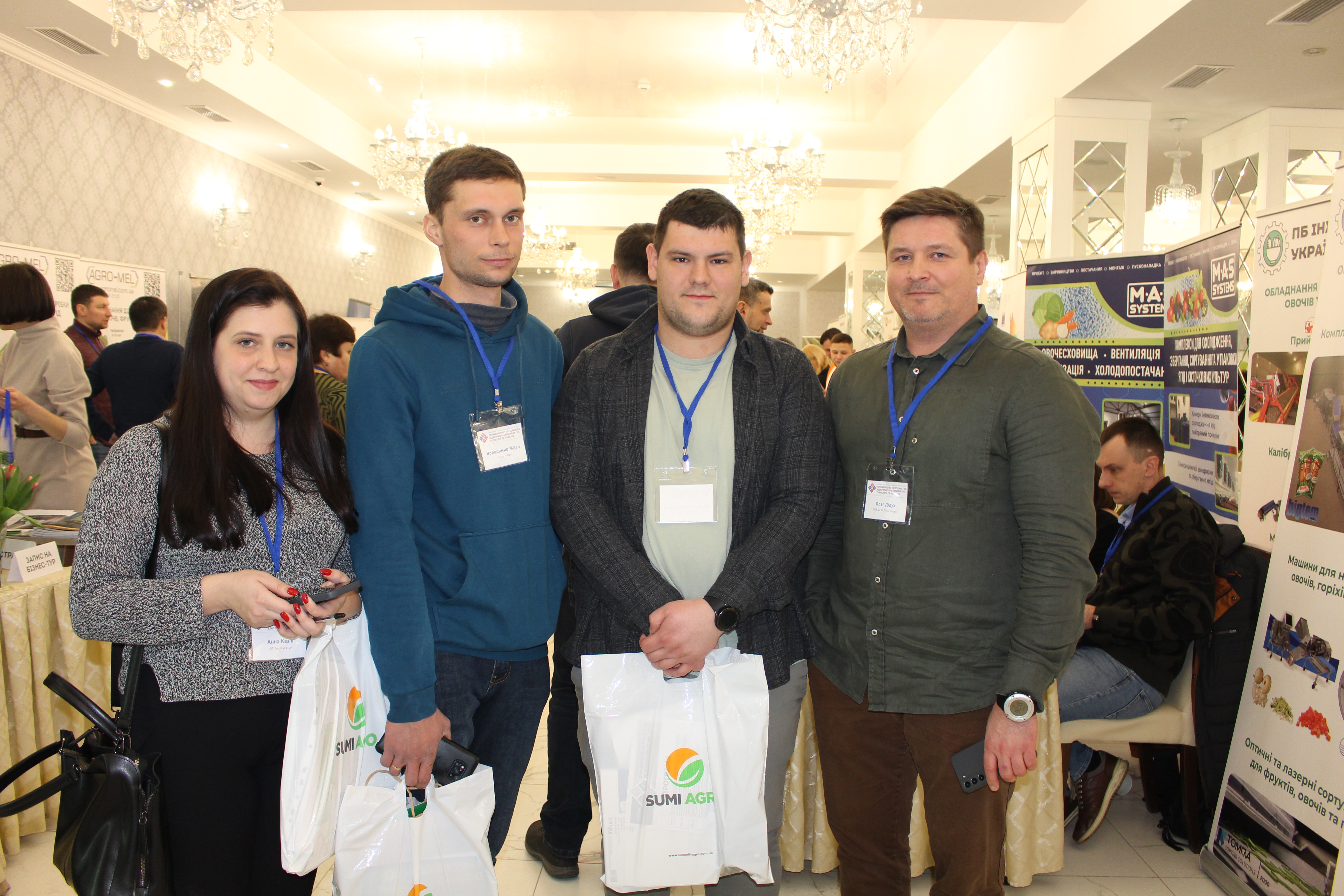
Rosehip is an exclusive niche berry that was discussed by the conference participants. Pavlo ROHOZA, commercial director of the company "Shypshyna Ukrainy", devoted his speech to this topic. According to the speaker, the perspective of rosehip plantation is based on the long-term use of about 15-20 years. Moreover, this berry crop is frost- and drought-resistant and resistant to diseases and pests. Due to late flowering in the second half of May, the bush gives good harvests.
Growing grapes in greenhouses was also highlighted at the conference. Olga YULINA, the representative of the farm "Vynogradnyk Yulinykh", shared her many years of experience. The biggest problem of growing grapes in greenhouses is pollination and bud formation at elevated temperatures. Undoubtedly, it would be better to plant varieties with androgynous flowers and hybrid forms that need short pruning cuts. These flowers undergo self and cross-pollination. It also requires good ventilation for greenhouses. The most popular hybrid forms that are not suitable for greenhouses: Zeus, Asia, Giant, Zorenka, Dyn`ka, was noted by Olga Yulina.
Among the conference participants were our regular participants, but those farmers, enterprises, and companies who attended us for the first time. In particular, the founder of the nursery "Vash Sad" from the Rivne region, Anatoliy KORYSTYATINETS (who, by the way, turned out to be the oldest participant of the conference!), emphasized on importance of such kind of conference for setting new acquaintances and business relationships. In addition, the farmer noted that such conferences allow us to get to know a large number of partners and colleagues, as well as to learn about new technologies and solutions, also exchange experience, and take over experience from colleagues. Over the years of my work, I seem to know a lot, but every year, we can see different novelties, technologies, and solutions. Moreover, there are now so many varieties and new drugs that it is very difficult to keep up with them!
Growing vegetables in greenhouses and in open ground: experience
For many berry growers, vegetables have become a profitable business diversification tool. Thus, growing vegetables undercover became an important topic of the conference. At the beginning, the topic of vegetable growing was opened by the speech of Viktoria PRYLUTSKA, the head of the sales department of the “Agroinnovation” company, our main technological partner. The speaker told why garlic is a highly profitable business. The company "Agroinnovation" is the official distributor of the company "Evroshok" for the sale of seed material and equipment for the industrial cultivation of garlic. The company is also engaged in the sales of garlic powder, extracts, and garlic granules.
Moreover, Viktoriya Prylutska shared with us an interesting fact about the highly growing garlic business all over the world. Her company grows such garlic varieties as European white, Spring white, and Spring purple. It`s a promising vegetable on the Ukrainian market. About 99% of garlic in Ukraine is imported. Today, 300 hectares are occupied with garlic in our country. Ukraine imports about 120,000 tons of garlic per year. 70–80% of this volume is sold in the retail networks. At the same time, in the world, about 90% of garlic is delivered for processing. Garlic cultivation in our latitudes, as well as Spanish and Argentinian, is valued in the world. So, our garlic is higher in price by 2 - 2.5 times than Chinese, Egyptian, and Indian garlic because it has a higher quality and better taste. According to our experience, garlic prices only increase over time. Thus, 10 years ago, the garlic price was at least 1.4 dollars. Since then, this number has never decreased. Now, we have a price of 2.4 - 2.8 dollars/kg. In Germany, the wholesale price of garlic is 5.2–6.4 €/kg, in Norway, Sweden, Finland – 8–9 €/kg, in England – 13–16 £/kg. That is why the prospects for growing garlic in Ukraine are very promising.

Marcel de JONG, an expert in the cultivation of Bodem&Groen company (Netherlands), told us about the peculiarities of growing sustainable crops in balanced soil. According to the expert, growers should make every effort to ensure that the plant absorbs all available light. The plant produces sugar while absorbing light, which is used later as energy for growth.
- It`s crucial to keep in mind that many of the carbohydrates produced by the plant go to the root system and through the root system to get into the soil and feed the soil biota. Balanced nutrition optimizes this process. It`s worth knowing about the plant health pyramid. The first step is the provision of full photosynthesis. The second step is to provide plants with conditions for complete protein synthesis that helps the plant to be more resistant to insects. The third stage is the synthesis of lipids. We can see this when the leaves` surface becomes shiny. Achieving this stage indicates an increase in plant resistance due to the penetration of pathogens through the foliar effect. The fourth stage is the synthesis of secondary metabolites if the plant is completely healthy. It also increases the plant`s immune system, for example, protection against pests and diseases, as well as against harmful ultraviolet radiation, - said the international expert.
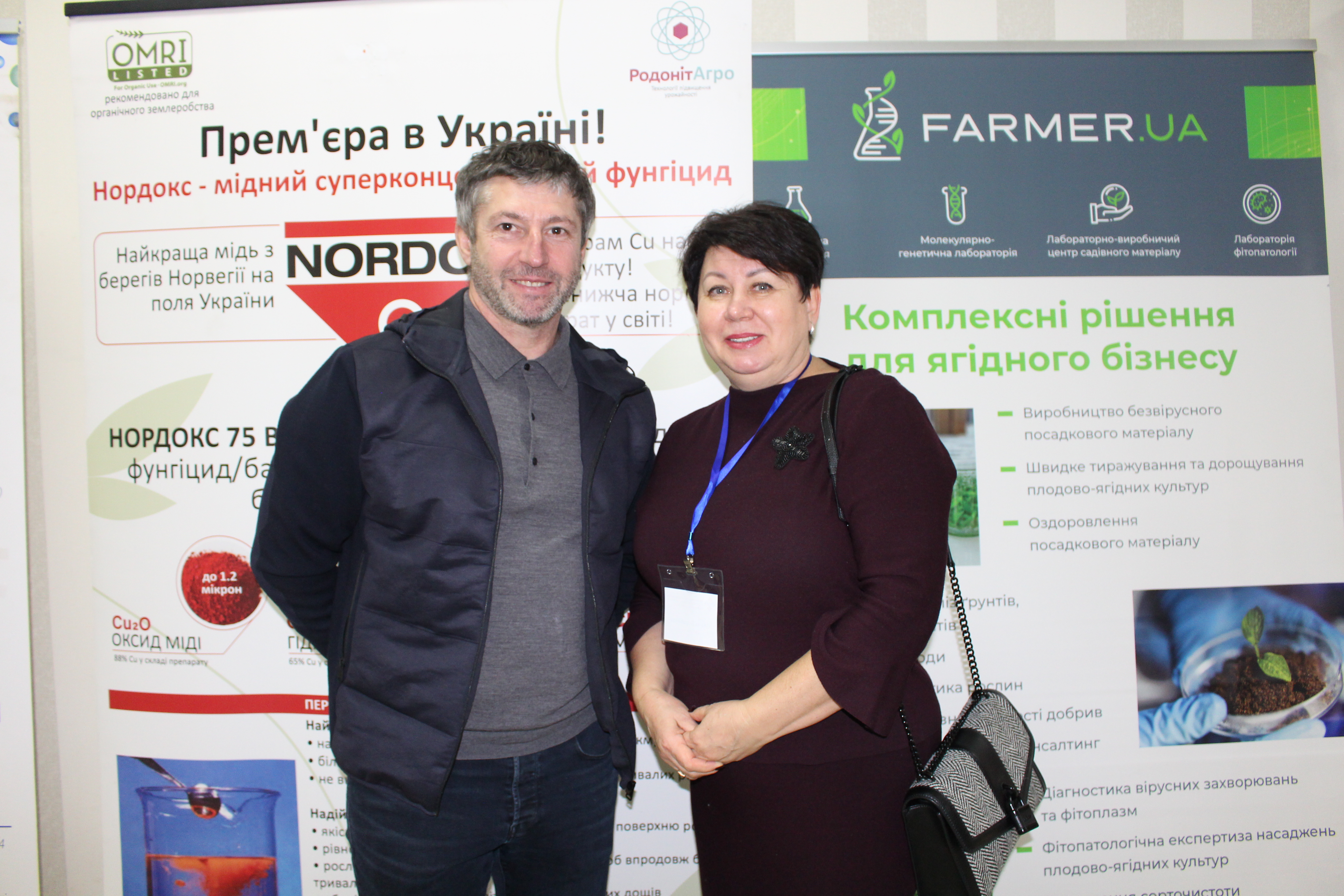
More and more farmers in Ukraine are paying attention to asparagus. Pavlo BULGAKOV, an international expert on fruit and vegetable storage, shared with participants the peculiarities of growing this crop. The speaker said that Guelph Millennium, Guelph Equinox, Guelph Eclipse hybrids were recently registered in Ukraine. Their advantage is that these varieties have 18 years of intensive harvesting. According to experts` experience, as a rule, investments in the asparagus business come back after the first 2 harvest years.
Attention was also paid to tomatoes. The prospects of using rootstocks in the cultivation of tomatoes in the greenhouse was told by Tetyana IVCHENKO, Doctor of Agricultural Sciences, Professor, Head of the Laboratory of Genetics, Genetic Resources and Biotechnology, Institute of Vegetable and Melon Growing, National Academy of Sciences of Ukraine.
She emphasized that for today, a quick alternative tool for increasing resistance to major diseases and productivity is grafting. As a result, the grafted plant has increasing growth power due to a strong root system. The plant growth, as a rule, is more stable throughout the whole productive cycle than similar non-grafted hybrids. Thus, grafting improves the absorption capacity of roots, increases the receiving of endogenous hormones to the roots, helps in the strength of photosynthesis, and increases enzymatic activity.

A grafted tomato better forms an ovary and forms well-dense fruits of high quality, thereby increasing the marketable yield. According to Tetyana Ivchenko, tomato is one of the most widespread vegetable crops, the annual production of which is more than 177 million tons, or 15% of the world`s production of vegetables in an area of about 5 million hectares. In Ukraine, before the full-scale war, the area of glass greenhouses was 167 hectares, film greenhouses – 8,000 hectares. This year, vegetables are grown on an area of 4,000 hectares.
The conference was attended by the company "Green Wave Organic" - the largest vertical farm in Eastern Europe, which specializes in growing vegetables and herbs in closed soil. Salads grown on the vertical farm were introduced by the company at the exhibition during the conference day. Volodymyr NOVIY, head and founder of the "Green Wave Organic" told us about the technology of growing greens in a vertical farm. According to the speaker, the greenhouse uses very little energy to grow one kilogram of products. At the same time, 20 times more plants are grown in a greenhouse per square meter than in ordinary greenhouses. And, 750,000 plants can grow simultaneously in a 1,500-square-meter greenhouse.
Olena KLYMCHUK, a co-founder of the “Klioma Service” company, shared her experience in diversifying production. The company discovered the direction of vegetable growing in 2022 when vegetable growing in the south of Ukraine was impossible to get or limited due to the war. Last year, the vegetable range was significantly expanded and covered broccoli, cauliflower, eggplant, peppers, cherry tomatoes, salad tomatoes, etc. According to the co-founder of the nursery, these vegetables were not common in the Volyn region before.

Olena Klymchuk also told us about problematic aspects of the vegetable business. The first of them is the proper variety choice. Things that we need to remember are that seed sale consultants will not always recommend exactly those varieties that will be transportable, easy to grow, etc. So, I advise you in the future to communicate with buyers or with employees of wholesale bases, who will provide more valuable information about varieties. Another problem is the lack of workers and weather conditions that caused us to lose part of the seedlings because we did not have time to plant them all. That`s why proper variety selection in terms of maturity, fruit shape, color, etc., needs in-time sowing seedlings and planting them in the field, looking for a sales market and ways of processing beforehand, and planning crops according to fruiting dates to have time for harvesting.
Read more about the unique experience of companies, scientific institutions, and farms, whose representatives gave speeches at the conference, in the journals "Horticulture and Vegetables Growing. Technologies and Innovations" and "Berry Field".
Technologies for growing berries and vegetables in the greenhouses
The successful experience of growing various crops is tightly connected with the latest technologies. Because the latest technologies in nutrition, plant protection, irrigation, etc, are core to success in this business. Innovative solutions in the growing fruit, berry, and vegetable crops were introduced by Serhiy DRAP, the product manager of specific crops and bioproducts of the company "Summit-Agro Ukraine". The specialist paid attention to such effective preparations as Migiva ®, Artemiks ®, Bestkur ®, Amalgeros ® Essence, and others and also gave recommendations on the effective use of these products on various crops.
Oleksander BYKOVSKY, a consultant in horticulture and berry growing of the "Agritema" company, presented biological solutions for growing berries and vegetables. Serhiy VDOVENKO, head of the vegetable growing department of the BTU-CENTER company, introduced biosystems for plant nutrition and protection in open and closed soil. Volodymyr Voevodin, marketing manager in specific crops of the BASF company, also introduced a new preparation for reliable plant protection - Reviona ®. Ruslan GAVRYLYANCHYK, product manager of the UniferX company and head of the R&D research department of UniferX enterprise, told us about requirements due to climate change. Valentina YAMKOVA, the head of the science and agrochemical service department of "VITERA UKRAINE" company, told the conference participants about the peculiarities of tomato nutrition during the growing season.
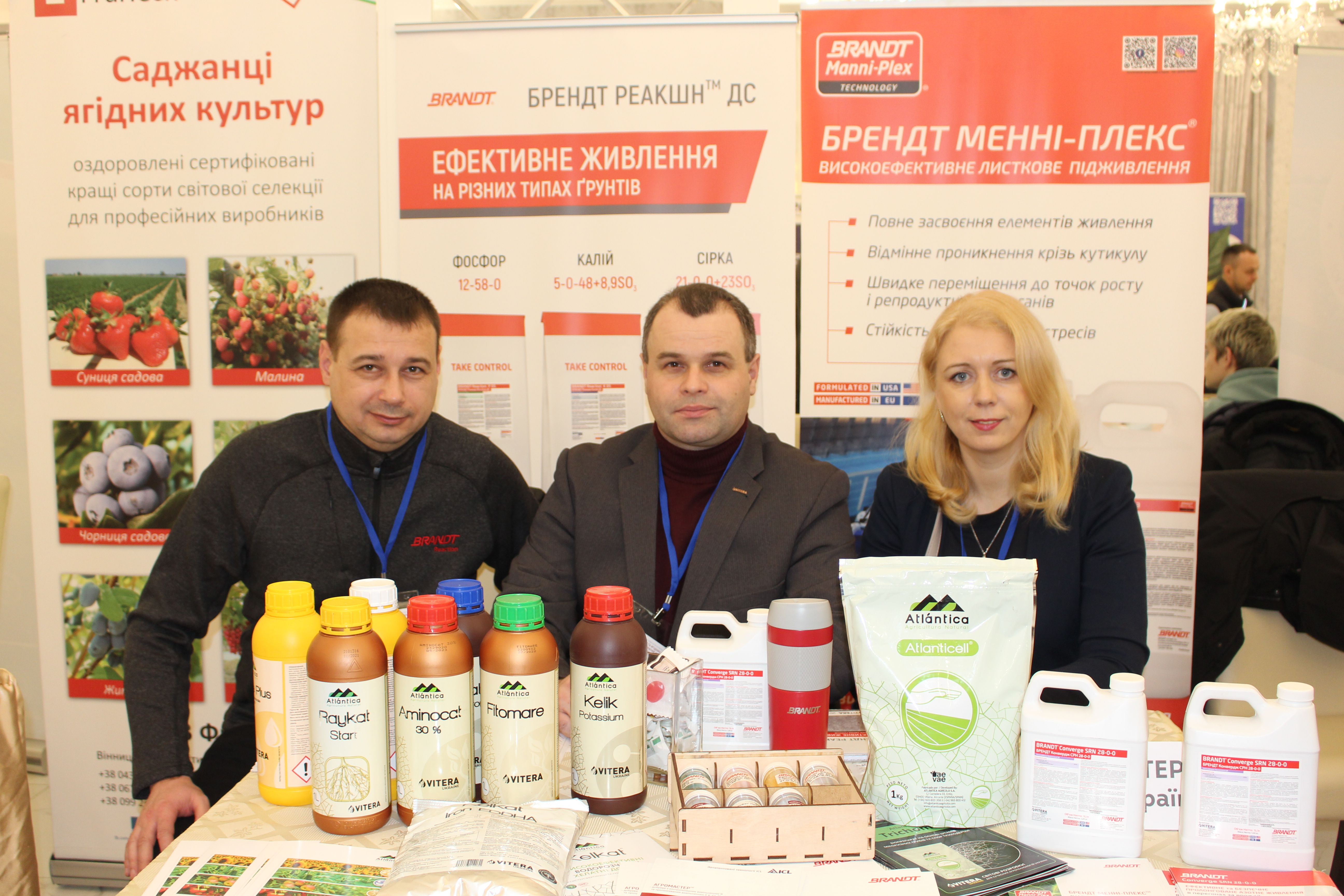
In addition, the conference participants learned more about the peculiarities of using biological organisms in greenhouses. So, this topic was revealed by Olena BOLTOVSKA, a specialist in fruit and vegetable pollination and protection and project manager of Rosana Biological Solutions. According to her speech, greenhouses are used to obtain a forecasted harvest of a certain crop, but the quality mainly depends on the approach to work.
Olena Boltovska also added that you need to make the best conditions for plants to make them feel comfortable in the greenhouse. Biological organisms should be used. These are, for example, monitoring traps with liquid entomological glue which hung in the early period, especially before placing seedlings on a permanent place of vegetation. If there is a pest on the plant, it will certainly fly away and sit on a bright trap. If we have allowed a pest to the plants, we must use traps to catch insects. Traps with liquid entomological glue are also used but are mainly attracted to small insects that stick to the glue. It`s no less important to know about the phytosanitary status of the region. If it has any quarantine facilities, different variations of pheromone traps should be placed in the greenhouses. All these help not to lose the future harvest.
Oleg DIDUKH, a commercial director of IT-Lynx Service, the official distributor of Haygrove in Ukraine, shared recommendations on what to start planning for growing plants in closed soil.
- At the beginning, you need to evaluate the land plot and understand its configuration, topography, and soil. Next, you need to decide on the source of irrigation and determine the water quality. Of course, the closer the water is to the plot, the better, and to know what underground and aboveground communications are there. After that, you need to figure out what crop would be better for this type of soil, the cultivation scheme, estimate how many plants are needed per hectare, and the volume of expected harvest. When all these will be ready only after we prepare the project documentation - and you will know the budget and investments in a certain period, was told by Oleg Didukh.
The speaker also talked about the main types of tunnels and solutions for ventilation in tunnels. For example, SOLO tunnels have a simple solution for ventilation with the possibility of rolling the covering film on the sides of the tunnel for quick covering and opening. The tunnel has a Gothic arch shape. Only suitable for early season, windy areas with wet snow up to 5 cm. At the same time, the EZVENT greenhouse type has mechanized and automated ventilation options with a simple design. This is an ideal type for large planting areas, resistant to wind and snowfall up to 20 cm. The speaker also mentioned other types of greenhouses - TOTAL VENT, DOUBLE SKIN, and PIONEER.
Denys RUDYCHEV, the chief engineer of the “ProfPolyv” company, told us about the importance of a comprehensive approach in the berry project implementation.
He outlined the project planning of the land plot and what should be paid attention to. It includes the analysis of soil and water, physical and mechanical soil composition biological studies, schematic breakdown of the land plot, and underground communications existence. The second stage is the development of drainage systems because it`s important when you plan to build a greenhouse on a flooded site. First, the plot should be drained, and then you can begin the construction of the greenhouse. After construction and planting, it can be not easy to drain the water. To carry out the drainage system, a corrugated pipe is taken, wrapped in agricultural fabric, crushed stone is poured on the bottom of the trench, and then covered with soil. After that, everything works efficiently and for a long time. The development of water storage basin projects is crucial, and the size should be calculated with water supply for 5-7 days.
Nataliya BELIKHINA, a consultant in drip irrigation technology of the “Eucalipt P” company, talked about the drip irrigation systems for growing in open and closed soils. The company`s specialists work with both growers, who grow in the open ground and undercover. This`s, for example, a vertical grow rack system for microgreens or other small crops. While using such type of growing, it`s impossible not to use automatic technologies. In particular, when growing in containers, separate droppers are used, which are placed in each container. Irrigation systems can be different depending on crops, technology, substrate, etc.
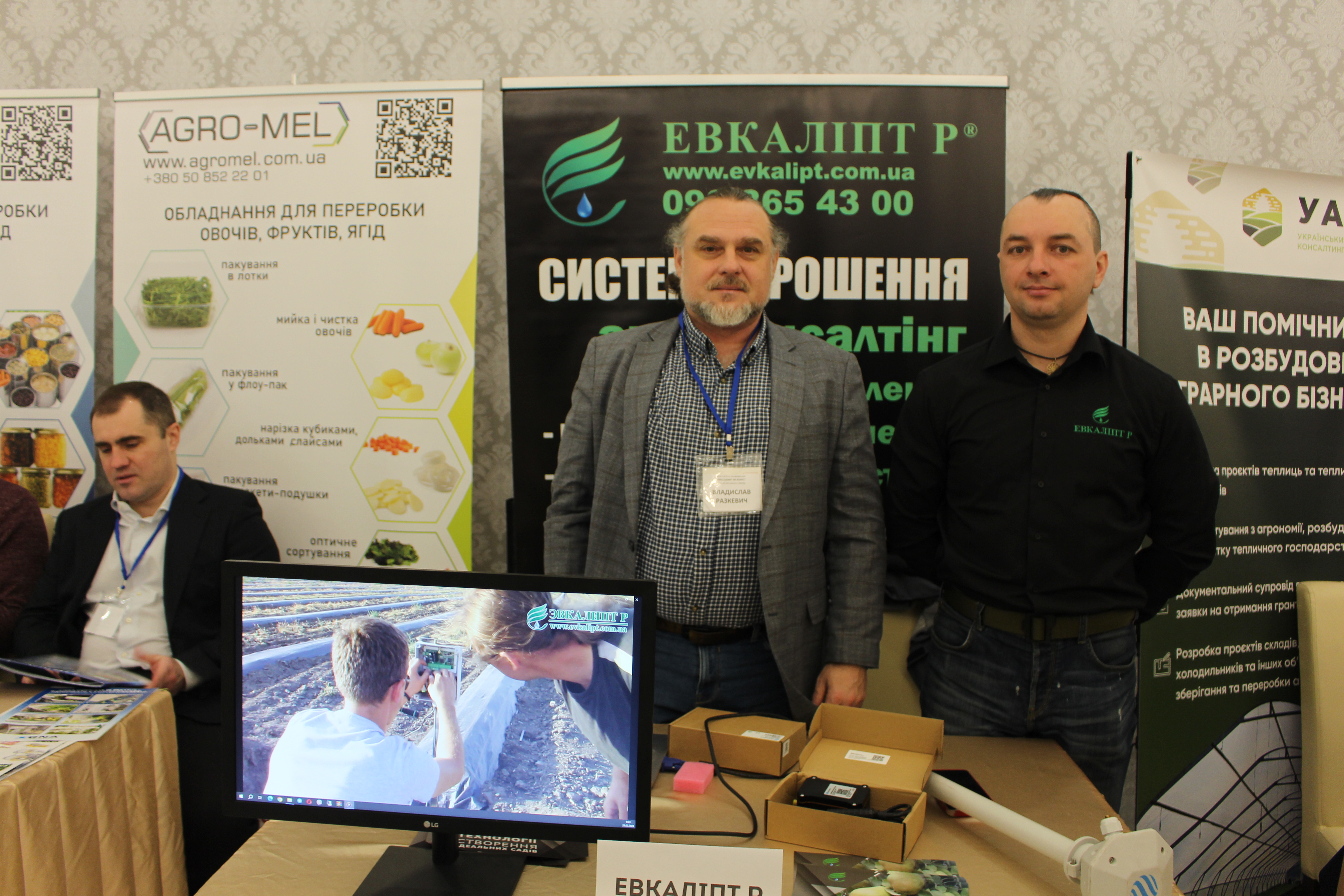
During the conference, a traditional exhibition of technologies, plant protection and nutrition, machinery, and equipment, including fresh and processed products, took place. About 52 companies took part in the exhibition. Among them were: Agroinnovation, EFT Group, ProfPolyv, Biochem Agro, Summit-Agro Ukraine, Rosana Biological Solutions, BTU-CENTER, IKARAI Ukraine, PB Engineering Ukraine, Makosh, Green Wave Organic, IT-Lynx Service, SmartAgro, MAS Systems, Ukrainian Agrarian Consulting Center, PRBuilding, Petrutsalek, Institute of Vegetable and Melon Growing of NAAS of Ukraine, Tolsma Technik, 4 Elements, Fresh Forward BV, BioNorma, Alfainterplast, Vodovid, AGRO-MEL, Iryna Pavlova, Yulinykh Vineyard, Agritema, Rodonit Agro, Eucalipt P, FruTech, De Camp Ukraine, Fruktovy Sad AT, Sens Agro, Ceres Ukraine, Insortex, Ecorganic, Klioma Service, Novosad, Gumagroexport, Makita Ukraine, Greenhouse, Uniferix, Agroinnovation, BASF, Vitera Ukraine, Shipshina Ukraine, Sorter-Pak.
The following companies: "Yagidna Polyana", "Medy Zapovitnogo Krayu", farm "Valentina", "Strong Distillery", and "CraftSad" presented processed products, in particular, tinctures, mead beverages, gins, liqueurs, grappa, wine, juices, marmalade, berry sauces, jams, etc. The founder of Strong Distillery, Roman Medvedchuk, presented a unique development based on berries, vegetables, and fruits - a gel lighter that helps our soldiers of the Armed Forces of Ukraine warm up in the trenches or hot spots. Roman Medvedchuk sends it to the army for free. Oleg Kush, the founder of "Medy Zapovitnogo Krayu" was going to deliver all the money from selling his beverages during the conference to the needs of the Third Separate Assault Brigade of the Armed Forces of Ukraine.
It should be noted that about 250 participants from different regions of Ukraine: Kharkiv, Poltava, Cherkasy, Vinnytsia, Zhytomyr, Sumy, Dnipropetrovsk, Zaporizhzhya, Chernihiv, and others took part at the first international scientific and practical conference "Vegetable and Berry Growing Undercover or in the Open Ground: Technologies and Innovations". It was an indicator of the striving of Ukrainians to develop, and effectively work to support the Ukrainian economy, even in such heavy times.
Charity auction of goods and services to support the Armed Forces
A traditional part of the conferences organized by the media group "Technologies and Innovations" is a charity auction of goods and services for the needs of the Armed Forces. It was already the 8th auction, which was held with the support of the "Strong and Free" Charitable Foundation. The auction was conducted by the head of the fund, Tetyana Smirnova.
Some goods and services from the partners of the conference were raffled at the auction, in particular, the following auctioneers, presented lots for the auction: Iryna Pavlova, Pavlo Bulgakov, farm “Yagidna Polyana”, “FruTech”, “Rosana Biological Solutions”, “Strong Distillery”, “CraftSad”, “Vitera Ukraine”,” Klioma Service”, “IT-Lynx Service”, “Planeta Group”, “Spanrise”, “Zhydachiv pulp and paper mil”l, “Makita Ukraine”, “Plastmodern”, “BTU-CENTER”, “Berry Prykarpattia”, “Ukrainian vegetable company”, “Agreen”, “Ceres Ukraine”, Vitaly Chata, Anatoly Korystyatinets, farms “BzB-D”, and “Valentyna”. Among other lots were presented certificates for subscription to sets of journals of the media group "Technologies and Innovations". In total, we were able to fundraise 44,300 UAH. Thus, funds helped partially close the request from soldiers.
Negotiation tables with representatives from large trade networks
Everyone who grows fresh products wants to sell them at a good price. But, how to do it? How to start cooperating with trade networks, to form a business-to-business network? So, negotiation tables with representatives of trade networks, communication with them, and cooperation agreements were provided to the participants during the conference. The event was attended by representatives of the EKO, FUDCOM, and METRO Cash and Carry Ukraine. Negotiations with representatives of trade networks lasted all conference day and caused a great interest of the audience.
Anna SHULHA, a representative of the METRO Cash and Carry Ukraine network, noted that such specialized conferences help in finding new suppliers, new ideas, useful connections, and studying market trends.
She noted that during the conference, she was able to negotiate with many people here. Many new suppliers with a variety of products, in particular, greens and mushrooms, were contacted with us as well. We had got new business acquaintances. The next stage of cooperation with new suppliers is registration on our website. After that is a legal inspection by the security department. We can talk about signing a contract if everything is ok. Most often, new suppliers are interested in the following issues: what product packaging should be, what varieties are in consumers` demand, and what payment terms we offer. In general, we see that everyone is trying to follow international quality standards and get all certificates for expanding its range of varieties. Although the country is currently in wartime, the producers of fruits and vegetables are concerned that even after our victory, we will be ready for European running business conditions. Therefore, even those farms, that are located not far from the war line zone try to implement quality standards, in particular, GLOBALG.A.P. It is not a secret that we cannot visit an enterprise that works in a dangerous area. Thus, the GLOBALG.A.P certificate gives us confidence in the quality of the supplier`s products. We pay great attention to quality, even if the production cost is higher. This is our method of raising a conscious consumer.
Business tour to the "Viplant" farming enterprise
The second conference day, March 1, started with a business tour to the Viplant enterprise, located in the village of Voronkiv, Kyiv region. The "Viplant" enterprise, since 2017, has been growing vegetables and seedlings, berries, and tulips on an area of 7 hectares in closed and open ground. Garden strawberries and blueberries grow here in the open ground, and seedlings of cabbage, cucumbers, and tulips are grown undercover, which gives an additional income. The representatives of the Ukrainian Scientific Institute of Plant Breeding presented innovative varieties of corn and talked about growing this plant. Vegetables at the enterprise are grown according to the technology of a small-scale hydroponics system when the plant grows in bags with an artificial substrate, in particular, in the mineral wool cubes.
Mineral wool is an effective greenhouse method of maintaining the water-salt balance, assures a healthy root system, a strong plant that has good balanced vegetative and generative development, and easier management of growth periods. The small-scale hydroponics system requires a very clear control of monitoring and management of irrigation, as well as a subtler and more careful attitude to indicators and the amount of irrigation solution. All these are under the control of sensors that help to monitor the whole situation on the computer or phones and can control all these processes in the greenhouse, - said Maksym Vasylenko.
According to Maksym Vasylenko, the head of the farming company, growing flowers is one of the options for partial diversification of business and using free space in greenhouses. He said that after growing seedlings in the greenhouse, we plant tulips in that place once a year. In general, the tulip is a rather specific flower crop, at the same time, it`s economically profitable to grow it in greenhouses to pick up at the end of winter - at the beginning of spring. At any other time, it`s inconvenient to adjust the climate and temperature regime because when the flower begins its forming, thus the temperature in the greenhouse should be higher. On the whole, when we built the greenhouses, we expected to grow flowers in one section, but over time, we realized that if you want to be successful, you need to focus on one thing.
.jpg)
You can read more articles based on the materials from the conference in the journals "Berry Field", and "Horticulture and Vegetable Growing". T. I." Our next conference will be dedicated to the technologies of horticultural business, to be held on June 6-7, 2024 (the venue is still agreed). The conference will be devoted to the technologies of growing stone and pome fruits. Follow the news on the website https://forum.techdrinks.info/
 06.03.2024, 11:59
06.03.2024, 11:59







.jpg)




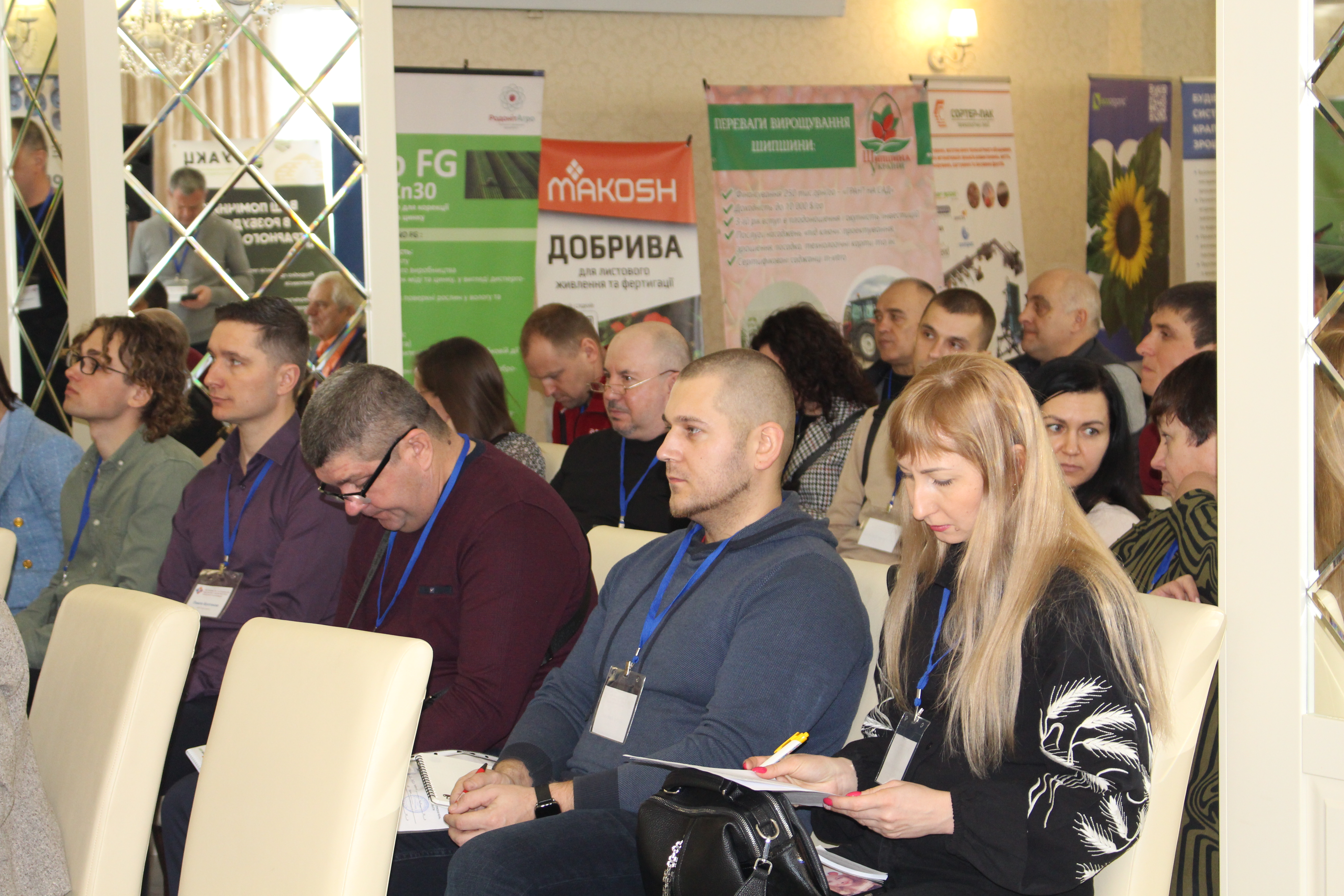



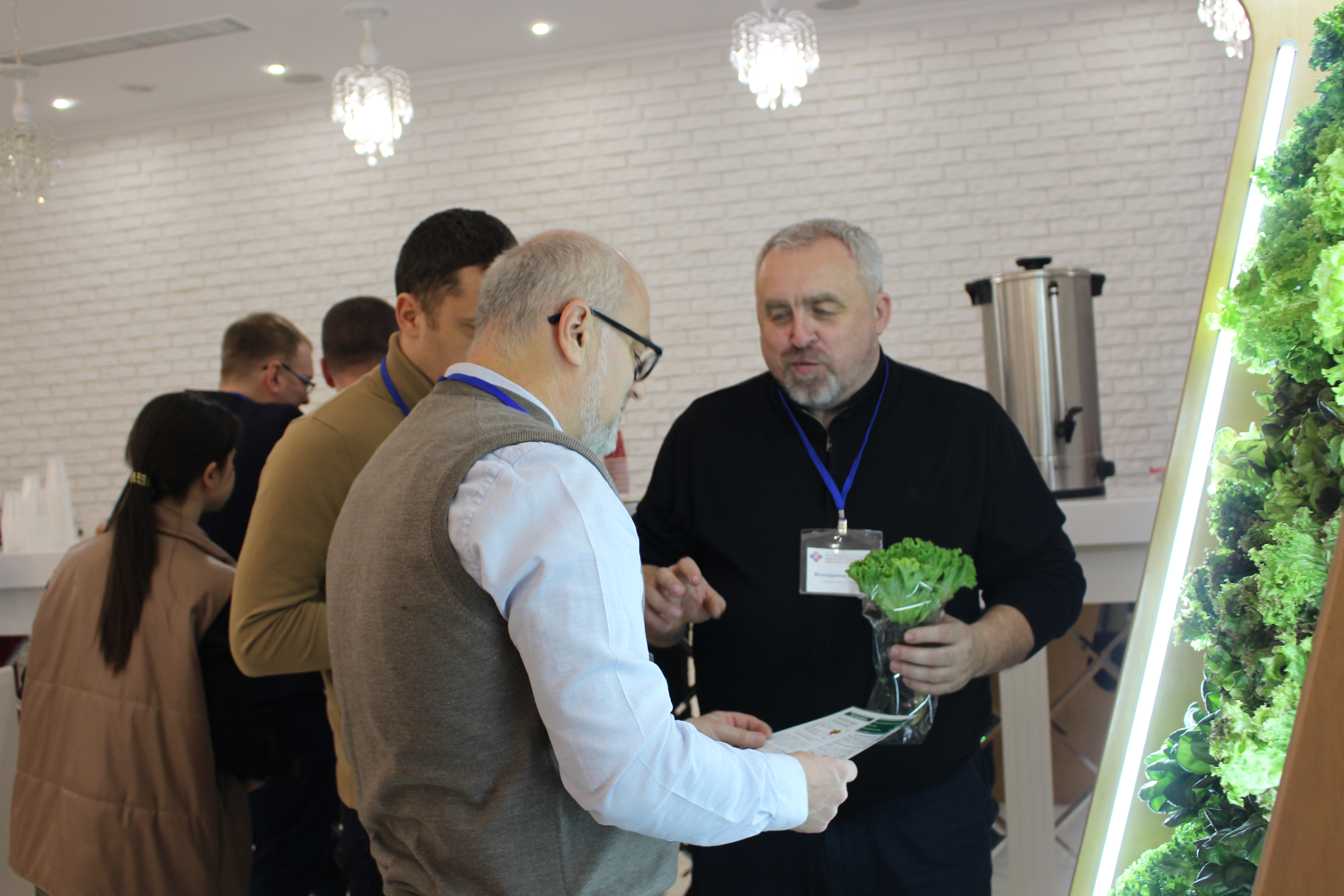
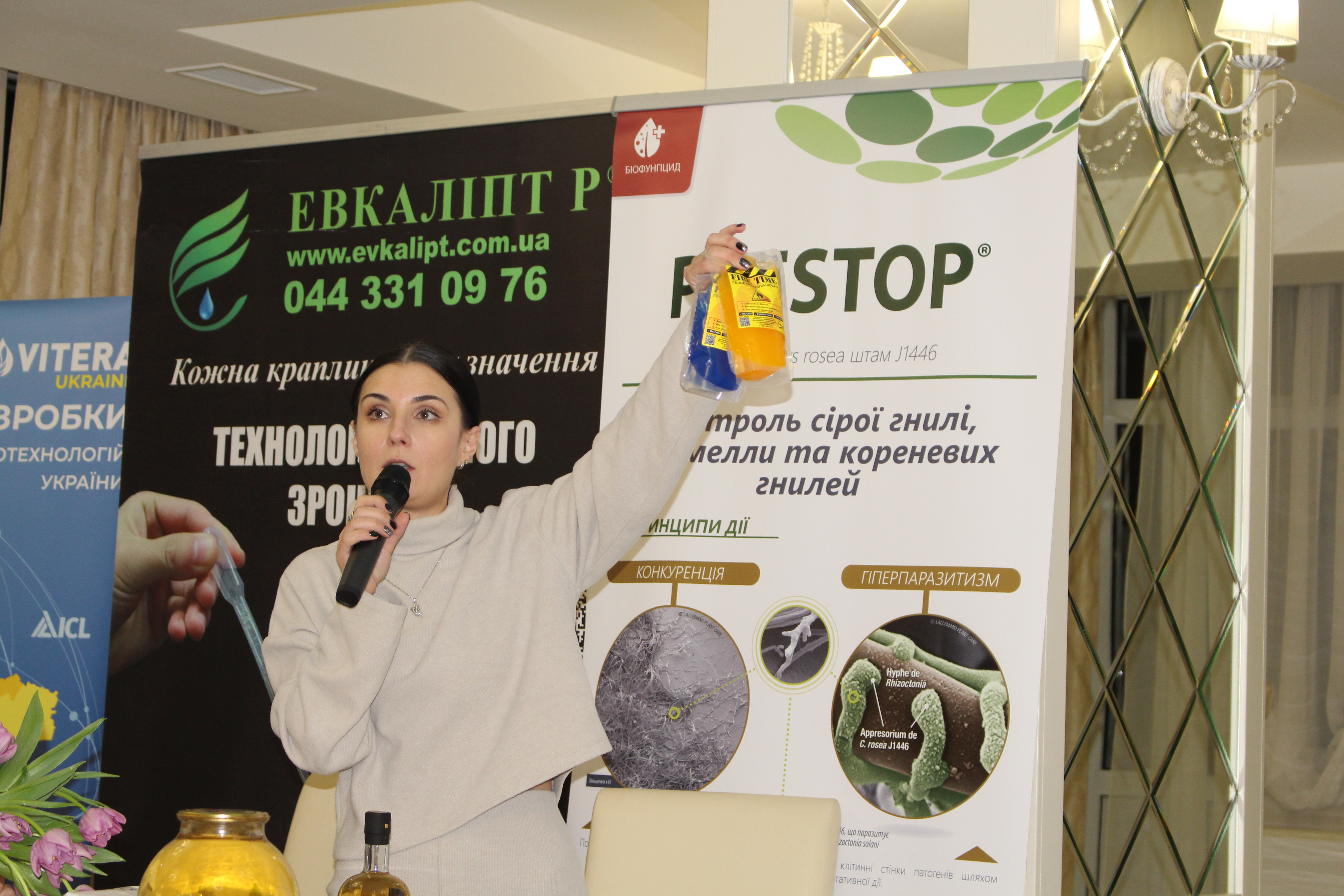
.jpg)






